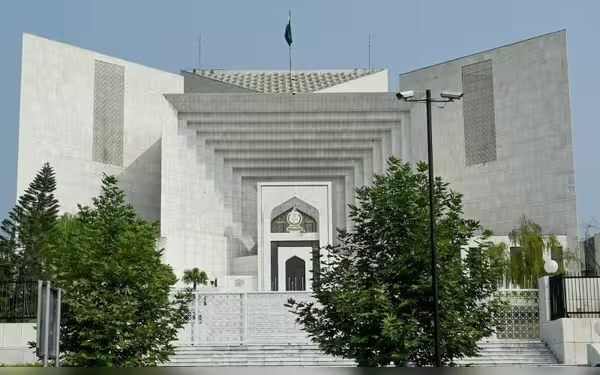Saturday, November 16, 2024 05:40 PM
Judicial Backlog Resolution Initiatives by Chief Justice Afridi
- 59,435 cases pending in Supreme Court highlight judicial crisis.
- CJP Afridi forms committees to expedite case resolution.
- Focus on tax matters crucial for economic stability.
 Image Credits: dawn.com
Image Credits: dawn.comChief Justice Afridi initiates committees to address Pakistan's judicial backlog and expedite case resolutions for timely justice.
The judicial system in Pakistan has been facing a significant backlog, with a staggering 59,435 cases pending in the Supreme Court. This situation has raised concerns among legal experts and the public alike, as delays in justice can have far-reaching implications for individuals and the economy. Recently, Chief Justice of Pakistan (CJP) Afridi took decisive steps to address this issue by forming committees that include judges and legal experts. The goal is clear: to devise a comprehensive plan to clear the backlog and ensure timely justice for all.
During a series of meetings held on Thursday, CJP Afridi highlighted the pressing need to tackle the 3,496 pending tax and revenue matters that are currently stalling the recovery of a substantial amount of Rs97 billion. These cases are not just numbers; they represent real money that could be used for public welfare and development projects. The CJP's concerns reflect a broader understanding of how judicial delays can hinder economic progress and affect the lives of ordinary citizens.
The formation of these committees is a proactive approach to a long-standing problem. By bringing together judges and experts, the CJP aims to create a strategic plan that addresses the root causes of the backlog. This initiative is crucial, as it not only seeks to expedite the resolution of cases but also aims to restore public confidence in the judicial system. When people see that their cases are being handled efficiently, it fosters trust and encourages them to seek justice.
Moreover, the focus on tax and revenue matters is particularly significant. The pending cases in this area have a direct impact on the government's ability to collect revenue, which is essential for funding public services and infrastructure. By resolving these issues, the judiciary can play a vital role in supporting the country's economic stability.
The steps taken by CJP Afridi to address the judicial backlog are commendable and necessary. It is a reminder that the judicial system must evolve and adapt to meet the needs of society. As these committees begin their work, it is hoped that they will not only clear the backlog but also implement measures to prevent such delays in the future. A more efficient judicial system will ultimately benefit everyone, ensuring that justice is not just a promise but a reality for all citizens.













